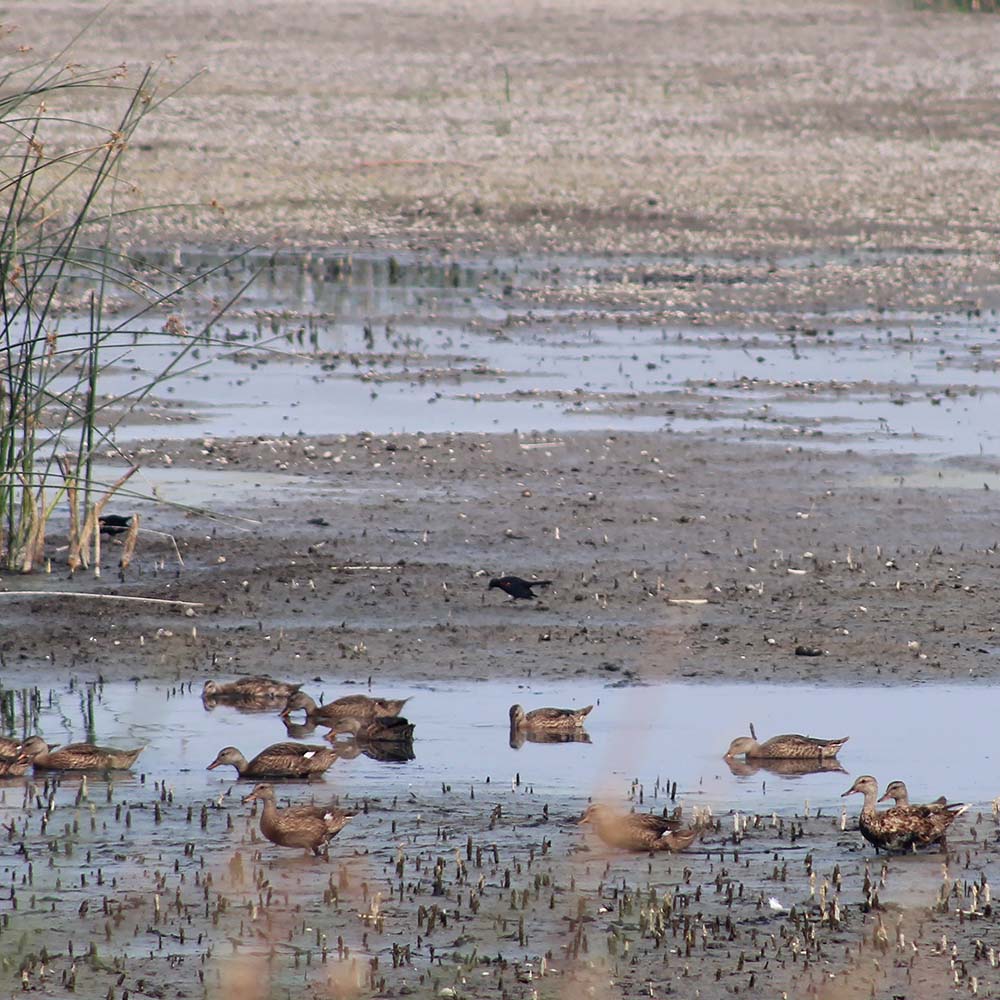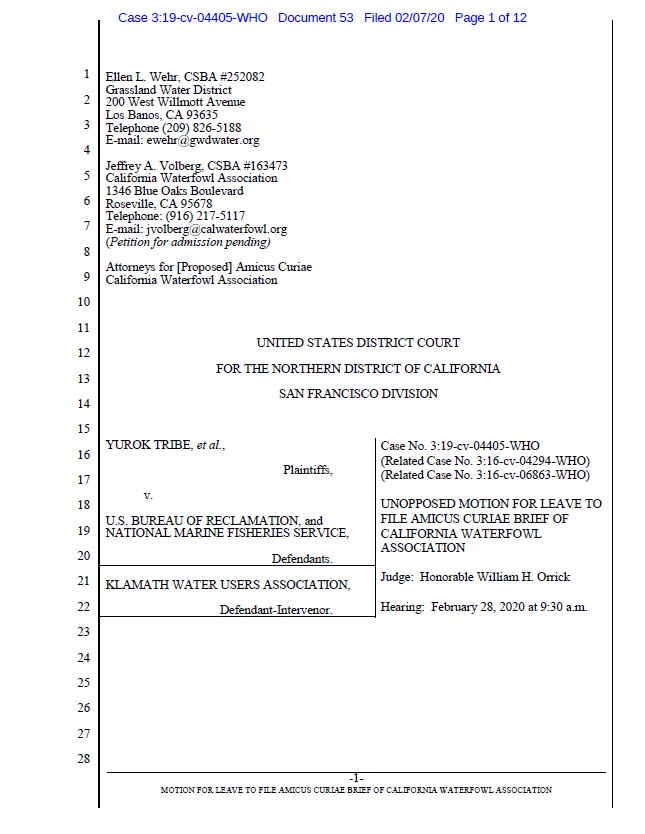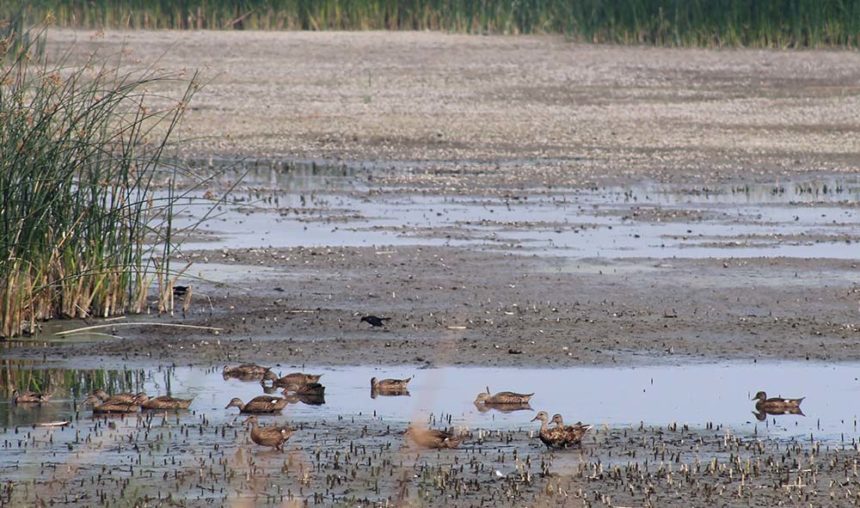
Feb 20, 2020
LKNWR UPDATE: Legal filing details devastating effects of withholding water

Click here to read the court filing.
California Waterfowl filed papers this month in U.S. District Court detailing the devastating impacts of a 2017 legal decision on the Lower Klamath National Wildlife Refuge.
The 2017 decision ordered the Bureau of Reclamation to send 50,000 acre feet of water from the Klamath Project down the Klamath River, meaning the water wasn't available for the nation's first waterfowl refuge or the region's farmers. The Yurok Tribe had sued for the water, arguing it was needed to flush salmon parasites from the river.
When the judge made that decision in 2017, he noted that while parties said the Klamath Project provided water for the refuge, they didn't detail what effects the water's removal would have. As it turned out, the decision resulted in Lower Klamath going almost completely dry in 2018 heading into the fall migration. The peak population of 160,000 waterfowl that fall was the lowest in recorded history: just 20% percent of the long-term average peak population of 800,000 and 5% historic peak populations of 3 million.
The loss of water in the summer also sharply limited habitat where waterfowl could rear their broods, and where ducks could molt – a perilous time for the birds because they are flightless during the molt. These habitat bottlenecks couldn't come at a worse time for California's breeding population of mallards, which has been in decline (see article from Fall 2019 issue of California Waterfowl).
(Story continues below photo)

Flightless ducklings were left high and dry at the Lower Klamath National Wildlife Refuge in the summer of 2018 as wetlands drained - the result of a court injunction. PHOTO BY CAROLINE BRADY
In 2019, the Bureau of Reclamation produced new biological opinions, official documents dictating how much water must be diverted from the project to aid endangered fish species, including coho salmon. The opinions did not guarantee even close to sufficient water for Lower Klamath – no water in critical summer and fall months. But nor did they provide the 50,000 acre feet the Yurok Tribe sought, so the tribe has filed for another injunction.
California Waterfowl's amicus brief in the case (Yurok Tribe v. US Bureau of Reclamation) seeks to ensure that the judge is aware of the implications of that request for Lower Klamath.
The refuge fared better in 2019 than it did in 2018 because abundant precipitation meant farmers had a surplus of water that they could share with Lower Klamath (see article). But drought conditions this year are already expected to have dire consequences, leaving farmers with no surplus to share. An adverse decision in the court case could make problems even worse.


